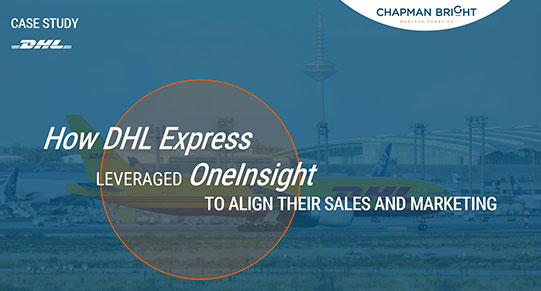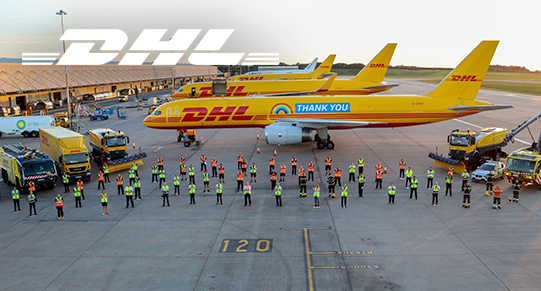

DHL Express - How DHL Express Leveraged OneInsight to Align their Sales and Marketing
Learn more about how DHL Express experimented with OneInsight to align their sales and marketing teams.
We can describe logistics companies as businesses that do shipping, packing, picking and warehousing for other companies. We can divide the Industry ‘logistics’ into multiple different categories. For example, there are many big logistics companies that operate as postal transport companies, like PostNL. Other examples are aviation or railroad operations. We all know these companies, but there is a unique component to this sector. Most of these companies operate globally, but they enable their local firms to run their own marketing campaigns. Management often happens in a less top-down, less worldwide way. These companies often have the ability to still grow a lot in terms of marketing operations. That leads to the question: how can Marketing Automation help these companies grow?
The challenges for these companies vary. Some companies have never dedicated a lot of effort into their marketing initiatives, but some do. Important to remember for logistic companies is that the focus initially lies with a straight forward approach to marketing. If that approach is very well implemented in the organization, the focus can shift to other topics, like investing time and effort in lead management, scoring or nurturing based on specific behavior or demographics.
Another situation we often see in logistic organizations is that the specific companies have a limited group of clients, for example in warehousing. A big objective for those companies is becoming (but more importantly, remaining) the regular supplier for their clients. They want to acquire a large part of one of their client’s shipment to their existing business. These companies can use Marketing Automation and Account Based Marketing to connect to their clients in the right place, at the right time.
An important aspect within these companies is onboarding and activation. Let’s have a look at a company like Uber. Uber is a technology/transportation company where drivers can register themselves to subsequently offer their services on the Uber app. The users of Uber’s services, in this case the drivers, need to be onboarded on how to use the app. Also for other companies in logistics, it’s important for their users to know how they make use of their services and actually start using it. Most of the time, the people who decide to purchase a service are different people than those who have to use it, which makes onboarding and activation an extremely important topic. Marketing Automation gives you multiple options to let this process run as smoothly as possible. It gives you the possibilities to provide users or customers the information they need so they won’t feel lost and unassisted. It will also enable you to have a good view on who is actually actively using your service and who is not. Based on this information, you can also act on time and appropriately.
One example of a company we worked for globally is DHL. DHL is widely known as one of the biggest shipping/transport companies in the world. We helped them roll out Marketo for every country they operate in. With different kinds of programs, campaigns and set ups, we ensure that all their marketing operations run smoothly and automated. Throughout this process, all countries are able to communicate their preferences and personalize their marketing initiatives based on that. We’ve set up some basic best practices program that are available for all countries, which they can use and adjust to their preferences. To give you an example: we work with an automated program for the onboarding of a new customer, providing them with the right content to best make use of DHL’s services. Besides DHL’s usual business, they also provide customers with other services, like smart technology tools and plug-ins. This gives them more opportunities to upsell. Marketing Automation can also play a role there, by nurturing customers based on their behavior and applying lead scoring.


Learn about how the implementation of Marketo Engage helped Portbase launch an urgent campaign and contribute to their business goals


Get a sneak peek into how Uber uses Marketo to grow their B2B annual marketing attributed revenue to over $12b in less than 3 years. Access Wyatt's presentation from the MarTech Fanatics Forum.


Piloting marketing automation to build a library of business value generating use cases, which can then be globally rolled out.